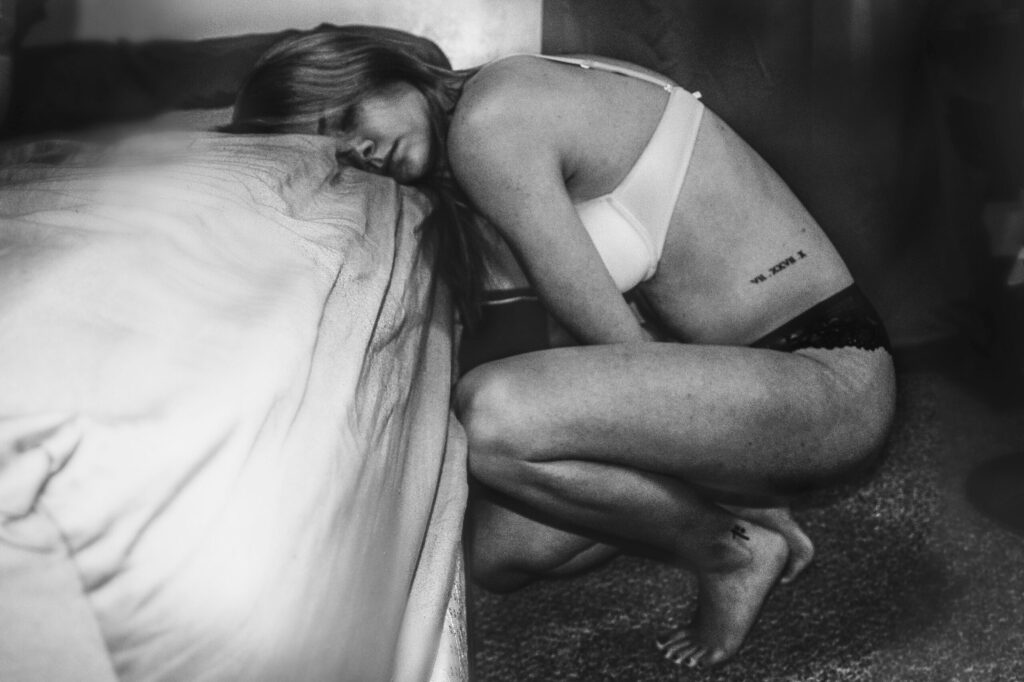It’s a frightening statistic, but according to Mind (the leading UK mental health charity), in any year, approximately 1 in 4 of the population in England will suffer some form of mental health problem. That most likely translates to the population of the UK as well. Depression (often mixed with anxiety) is present in about 8% of the population of England. So, it is a grave illness that affects day-to-day life and destroys families. Don’t be fooled by the belief that if you can’t see it, it isn’t an illness. It is a real illness that controls the mind and its functions, causing loss of appetite, sleeplessness, mood swings, and a deep sense of despair.
The symptoms of depression are varied, and the severity changes with time. And according to experts, depression can be an inherited disorder or caused by life-threatening illnesses or stress. Other causes are certain diseases, medicines, drugs, alcohol, or mental illnesses. Women are seen to experience depression more than men, and this is attributed to hormonal swings, menstrual cycle changes, pregnancy, miscarriage, pre-menopause, and post-menopause. That belief may be partly influenced by the fact that men don’t find it easy to admit mental health issues. Thankfully, that attitude has changed in recent years, which can only be a good thing.
Common symptoms of depression are:
- An unshakeable sadness, anxiety, or emptiness.
- Overwhelming hopelessness, accompanied by pessimistic feelings.
- Extreme guilt, feelings of helplessness, and no sense of self-worth.
- Loss of energy, a slowing down of metabolism and activity levels. Being plagued by constant fatigue.
- A sense of helplessness along with an increasing inability to focus and indecisiveness.
- Loss of sound sleep and development of extreme insomnia.
- Inexplicable weight loss or weight gain. Triggered by loss of appetite or eating binges.
- Brooding and suicidal inclinations.
- Irritability, short temper, as well as restlessness.
- Physical afflictions like headaches, digestive disorders, and chronic pain for no particular reason.

If you experience any of the above along with a marked change in behaviour do consult your doctor. They will give you a thorough examination to rule out physical causes for depression as well as any underlying medical problems. Then, if required, they will recommend that you consult a psychiatrist or psychologist.
Take matters in hand and try and erase negativity from your mind. Cut out from your life terms like exhaustion, worthlessness, and hopelessness. Change your life by setting yourself a few goals. Try and relax, meditate, and enjoy music. Start new activities that absorb your time as well as interests. Go out and meet people and participate in group activities. Avoid the company of negative people. Make up your mind to enjoy a movie, watch some sport, have a family outing, picnic, or trek. Be positive, self-confident, and have faith in yourself. Faith is itself a great healer. Decide to change your world for the better. However, do follow the doctor’s advice. Treatment can include anti-depressant medicines, psychotherapy, as well as lifestyle changes.
If your depression escalates or you are thinking of self-harm, or feel suicidal, seek help from your family physician or health care provider urgently. Call a local health department, a community mental health centre, a hospital a clinic. Volunteer groups like Samaritans are dedicated to helping people struggling in their darkest hours. They are available day or night for anyone who’s struggling to cope and who needs someone to listen without judgement or pressure.
Always remember that someone will extend a helping hand and talk you through the crisis.
This post may contain affiliate links. As an Amazon Associate, we earn from qualifying purchases. See our Privacy Policy for details.




